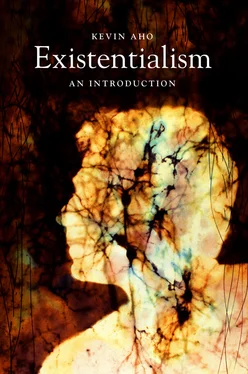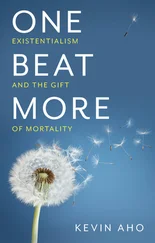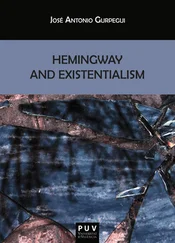For Nietzsche, the pre-Platonic Greeks were the embodiment of this kind of active self-creation. Here was a culture that wholly accepted the cruel and tragic dimensions of the human situation but sublimated and released these dimensions in artistic and creative ways, balancing the conflicting elements of Dionysian passion with Apollonian self-discipline. “Oh, those Greeks!” says Nietzsche. “They knew how to live. … Adorers of forms, of tomes, of words! And therefore — artists” (1954a, 683). But with the spread of Christianity and the conversion of the Romans under Constantine, the master morality degenerated through what Nietzsche calls a “transvaluation of values” (1996, I, 10), a historical reversal or inversion of Greek and Roman values. With inborn feelings of repressed envy or ‘ ressentiment ,’ the early Christians expressed their power by determining that creative, self-assertive, and independent values were ‘evil’ and that the meek, obedient, and selfless values of Christianity were ‘good.’ For Nietzsche, it is this reversal that has created the tame bourgeois society that we inhabit today, one that is standardized and weak, incapable of exhibiting any style or originality. But Nietzsche is hopeful about the future. He understands that slave morality requires subservience to an absolute moral authority, and it for this reason that ‘God's death’ is a cause for celebration. It provides an opening for what Nietzsche calls the ‘overman’ ( Übermensch ).
The Übermensch is a reference to a human ideal in a post-Christian, post-nihilistic future. Nietzsche describes him as one who will redeem us as much from the previous ideal as from what was bound to grow out of it, from the great disgust, from the will to nothingness, from nihilism, this midday stroke of the bell, this toll of great decision, which once again liberates the will, which once again gives the earth its goal and man his hope, this Antichristian and Antinihilist, this conqueror of God and of nothingness — he must come one day. (1996, II, 24)
The Übermensch is a “Yes-sayer,” one who embodies the principle of “ amor fati ” by loving and affirming his life as a whole (1995, 276). He is true to himself because he accepts the world as it is without the support of moral absolutes and owns up to all of the unique and idiosyncratic qualities that make him the person that he is, all of his strengths and weaknesses, everything that has been and will be in his life. In The Gay Science , Nietzsche describes the kind of courage that is required for the total embrace of one's life with a powerful thought experiment that he calls the ‘doctrine of eternal recurrence’:
What if one day or one night a demon slinked after you into your loneliest loneliness and said to you: “This is life, as you live it now and as you have lived it, you will have to live it once more and countless times more. And there will be nothing new about it, but every pain and every pleasure, and every thought and sigh, and everything unspeakably small and great in your life must come back to you, and all in the same series and sequence. … The eternal hourglass of existence [is] turned over and over again — and you with it, you mote of dust.” If that thought took control of you, it would change you as you are, and maybe shatter you. (341)
On Nietzsche's account, most of us would be ‘shattered’ by this doctrine. The thought of living through the fears, disappointments, and monotony of our lives over and over for eternity is too much to bear. This is why we don't overcome ourselves. We are unwilling to accept and carry the weight of our own lives. We conform to the bourgeois norms of the crowd, doing what ‘they’ do. But the Übermensch does not recoil from the demon; he responds, “You are a god and I have never heard anything more godlike” (341).
For Nietzsche, by embracing the world and owning up to our fate in this way we are able to impart a unique aesthetic style to everything we do, creating our own identity and life story as if it were a work of art (e.g., Nehamas 1985). It is ‘giving style’ to life that is, for Nietzsche, the one thing that is needed in order to be true to oneself:
‘Giving style’ to one's character — a great and rare art! It is practiced by those who survey everything that their nature offers in the way of strengths and weaknesses, and then fit them all into an artistic plan, until each thing appears as art and reason, and even the weakness charms the eye. … In contrast, it is the weak characters, lacking power over themselves, who hate the constraint of style. (1995, 290)
Unlike members of the herd, those who live with style and embody the ideals of the Übermensch do not mourn the death of God and do not invent and cling to new idols. They see the truths that have been handed down from history as simply “a mobile army of metaphors” (1954b, 46) that are, in no way, universal or morally binding. And they overcome these truths by reinterpreting them in creative and original ways as a means of poetically expressing their own unique style of living. This ability to playfully and spontaneously reinterpret their own tradition is a sign of health emerging from “overflowing fullness and power” (1995, 382). Being true to oneself, then, entails a commitment to be open and expansive by embracing a plurality of different ways of seeing things, and to be ceaselessly driven to transform and revise the apparent truths of tradition. “Such spirits,” says Nietzsche, “are always out to fashion or explain themselves and their surroundings as free nature — wild, arbitrary, fantastic, disordered, and surprising. And this is good for them to do, for only thus can they do themselves good” (290).
Both Kierkegaard and Nietzsche offer versions of the authentic self as a solitary figure who transcends moral absolutes and the leveled-down conformity of the crowd by means of a passionate commitment to one's own values and styles of living. Against this individualistic version, existentialists like Heidegger suggest that any account of authenticity has to begin with the recognition of our fundamental intersubjectivity or being-with-others. The central idea is that in order to be true to oneself we have to first realize that we can be a self only in relation to others. To put it another way, our sense of who we are and of what matters to us as individuals is constituted by our involvement in a world that recognizes us as the kinds of individuals that we are.
Heidegger's account of authenticity in the second half of Being and Time is arguably the most influential in existentialist thought, but it is distinctive in rejecting the image of the isolated hero who rises above the shallow norms of the public. For Heidegger, as we saw in chapter 4, human existence is invariably structured by ‘falling’ ( Verfallen ). This means that we are never solitary subjects but are always embedded in social contexts that open up possible ways that we can interpret and understand ourselves. In falling, our choices, actions, and self-interpretations are limited by the regulative norms and expectations of ‘the they.’ In our everyday lives, then, we are essentially a ‘they-self.’ We drift along with the crowd, enacting the socially approved roles and identities that are prescribed for us. In this mode, we are inauthentic because the question ‘Who am I?’ is not a pressing issue for us. Absorbed in the social world we simply do what anyone else does, assuming that we are living well and that our choices and actions are justified. But, as we have seen, this complacency can be shattered by anxiety, a mood that brings us face-to-face with the human situation and that is usually so disturbing that we spend most of our lives running away from it.
Читать дальше












